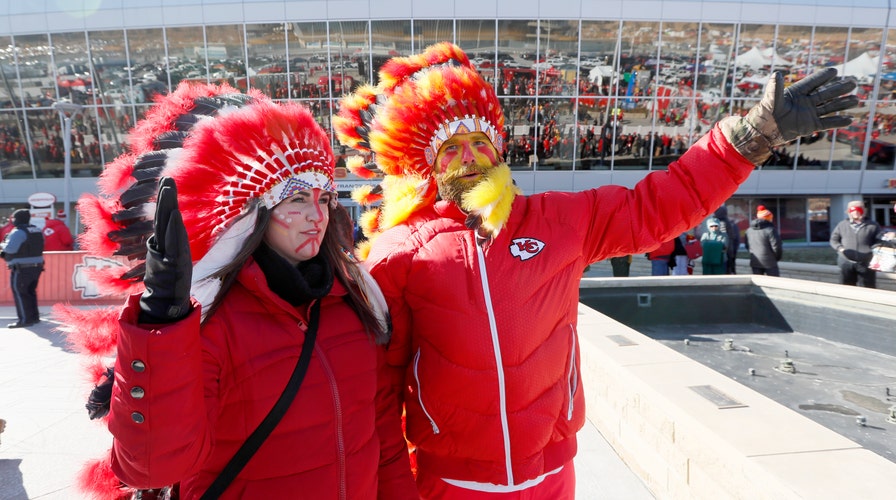Trump takes NFL, NBA to task about kneeling during national anthem
President Donald Trump did not mince words when discussing his feelings about NFL and NBA athletes taking a knee during the National Anthem.
The Kansas City Chiefs announced on Thursday that they will ban fans from wearing Native American headdresses, face paint, and clothing at Arrowhead Stadium. The team also discussed that they are “engaged in a thorough review process of the Arrowhead Chop,” which is also used by fans of the Florida State Seminoles, Atlanta Braves, and other sports teams with Native American associations.
The Chiefs also hope to shift the focus of the war drum that is pounded at the start of games to “something that symbolizes the heartbeat of the stadium.”
CHIEFS' BASHAUD BREELAND CONFIRMS 4-GAME SUSPENSION: 'I ACCEPT FULL RESPONSIBILITY FOR MY ACTIONS'
In a statement on Thursday, the Chiefs said that the changes came after many conversations with national organizations that work closely on issues that affect Native Americans. These decisions also come in the aftermath of the Washington Football Team deciding to drop its “Redskins” nickname.
“In 2014, we began a dialogue with a group of local leaders form diverse American Indian backgrounds and experiences,” the Chiefs said in its statement. “As an organization, our goal was a better understanding of issues facing American Indian communities in our region and explore opportunities to raise awareness of American Indian cultures and celebrate the rich traditions of tribes with a historic connection to the Kansas City area.
“We are exploring all options for a modified engagement moment from the Drum Deck that maintains a unifying effect between our fans and our players but better represents the spiritual significance of the drum,” the team added.
CLICK HERE FOR MORE SPORTS COVERAGE ON FOXNEWS.COM
The Chiefs, however, didn’t discuss their nickname, their logo of “KC” inside an arrowhead, or the name of Arrowhead Stadium in the statement. But the team said it was exploring the creation of a formalized education program, and it promised to continue discussions with Native American groups moving forward.
“We are grateful for the meaningful conversations we have had with all of these American Indian leaders,” the team said. “It is important we continue the dialogue on these significant topics and we look forward to continuing to work together.”
The Associated Press contributed to this report.




















